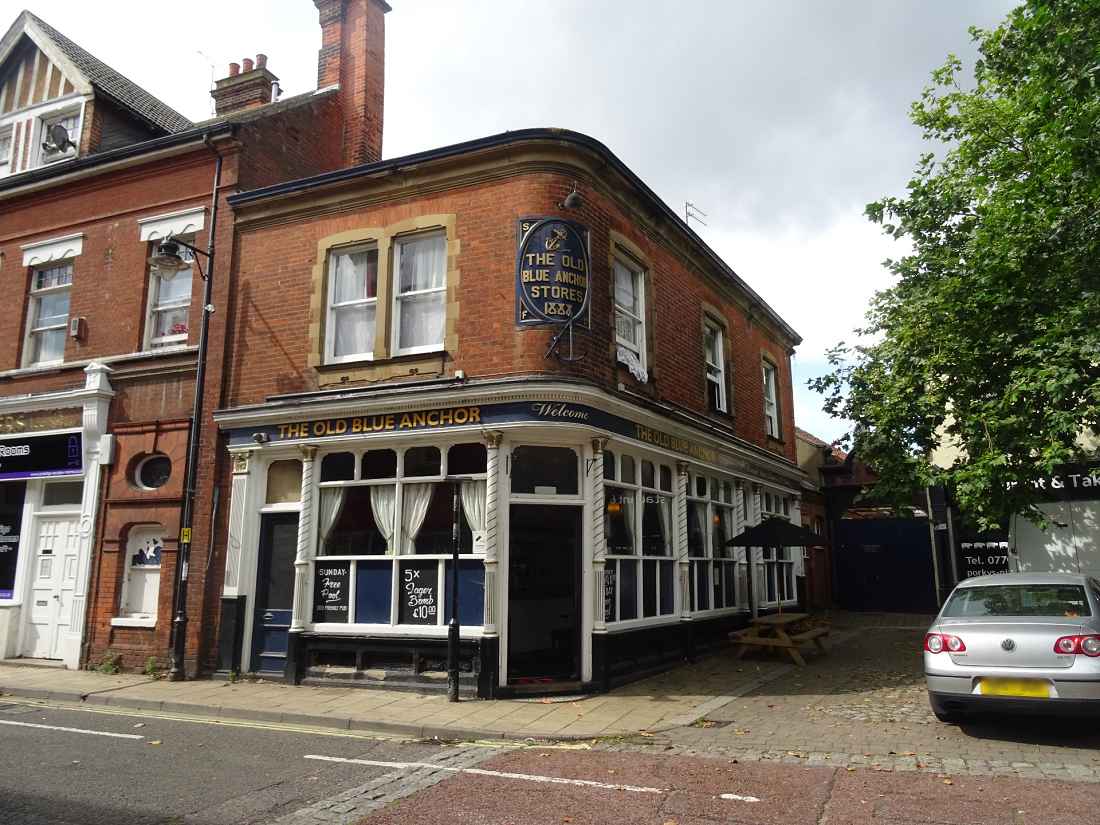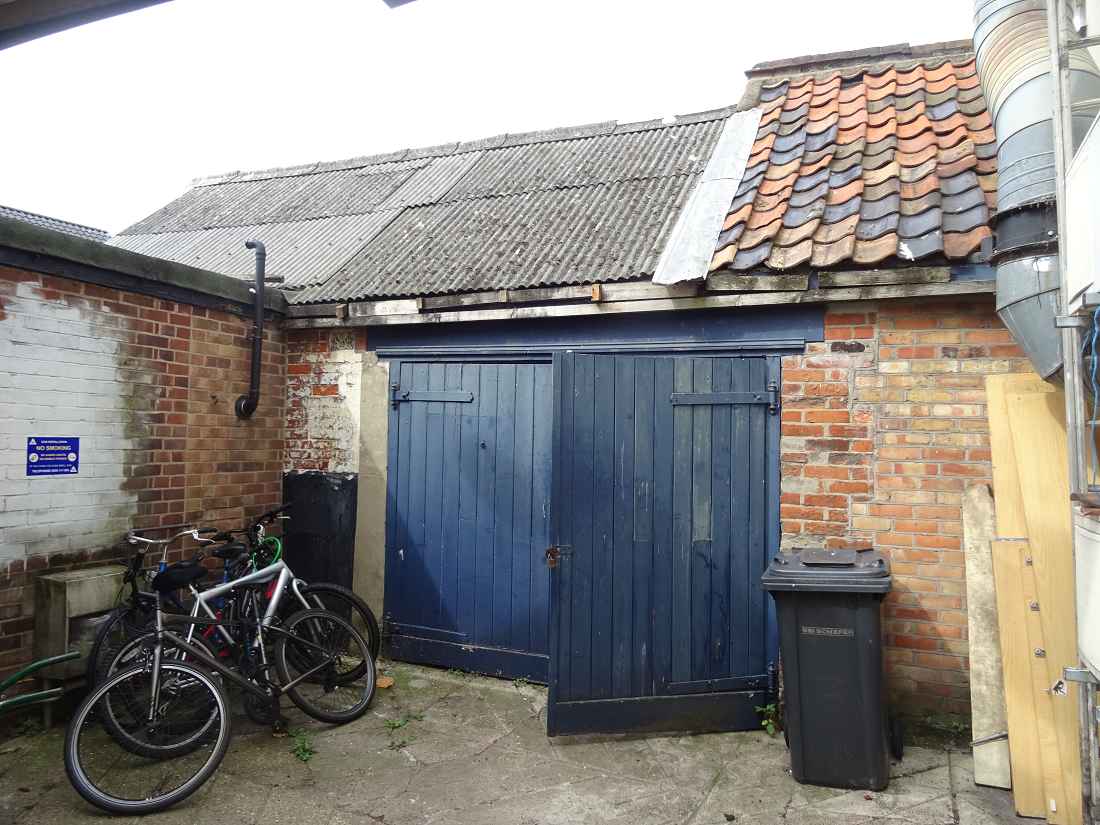I'm reminded of a version of the old saying - the fastest way to a small fortune is to start with a big fortune and open a microbrewery.
It's tough out there - really tough. There's going to be a lot of established breweries making good beer going bust in the next 12-18 months, in fact I saw a 10bbl one only today that, despite making some great beer and winning a bunch of awards and being a bit of a local "name", was only selling around £3k/week (so ~10bbl/week wholesale, in fact a bit less than that as there was some tap/direct sales) before Covid and is now up for sale.
Devon and Cornwall were high on the list at one point! We love the Falmouth Sea Shanty Festival and the country there is amazing. The locals can be a bit iffy with non locals though right? Can they handle an American?

We need a place with enough craft beer drinkers to make the venture viable.
Depending on your model, the drinkers are the least of your worries. Cornwall's obviously a lovely place that is the ideal place for a lifestyle business - but the pubs have been pretty much sewn up by the likes of St Austell. At one point there were more breweries in Cornwall than freehouses that were free to take their beer - obviously that's not a situation that's sustainable long-term.
I guess two big changes since you've been gone is the rise of micropubs, and the rise of gin, which with fruit cider is the (higher margin) equivalent of hard seltzer in the US I guess. Micropubs can be explained by the fact that you can rent old shop units and the like for £2-10k per month, whereas renting a traditional pub from a pubco might cost £50k+/month (either free-of-tie or £25k +wet rent in the form of the excess prices you pay on your tied beer). The early micropubs were very much places for old men to drink cheap cask beer, they've evolved into something a bit less cliquey, the good ones have realised that offering some decent gin and wine as well gets more bums on seats and can often have a 50:50 gender split. They've also got people used to drinking in non-pub environments, which has paved the way for even breweries in trading estates to have successful tap operations. Micropubs have been a bit of a lifeline for "traditional" 5-10bbl cask breweries in recent years, but since old shops tend not to have beer gardens, they've been really badly hit by Covid.
And the market has changed a lot, even in the last 2-3 years. We are now in a world where
ASDA are selling pineapple milkshake beer from Black Sheep (yes, Black Sheep) at 4 for £6, and people can buy 8 cans labelled NEIPA for
£9 from Tesco. It won't be giving the likes of Treehouse or Trillium any sleepless nights, but that's where people are now seeing the price points - and it's below the cost of production for small breweries.
So it's going to be really tough for traditional 5-10bbl breweries that have been making an OKish living selling mostly cask beer to the free trade. But even then they've been spending maybe 2 days a week brewing, 3 days a week selling the beer, 1 day a week delivering it and 2 days a week doing paperwork. I think those kinds of companies have a choice - either they scale up, to reduce their costs and maybe expand any swap programme they have into a full-blown wholesaling operation on the side to give publicans the choice of beer that the tickers crave, or they give up trying to sell much into the free trade, and just try and sell 2-4 bbls of beer mostly on their own premises (either on the same site as the brewery or at a micropub-type operation in town) at higher margin. I know that's a lot more common in the US than here, but we're seeing more of that.
Conversely a lot of the 0.5-1bbl part-time garage nanos that started in 2016 have come and gone, as people learn just how much work there is before you can sell just 1 pint, it's a lot of work for not much reward. Some traded up, a lot gave up.
As far as the practical stuff goes, Ted Bruning's books are a good place to start - The Microbrewers' Handbook is into its 7th edition now (beware there's a lot of earlier versions kicking around retailers), he also has written distiller's and bar owners books, it's all about the practicalities of dealing with the taxman etc. Some of the gotchas include waste water permits as brewery waste can deplete oxygen in watercourses. In the early days it was quite common to find breweries on farms as farms paid very little for water, but drink-driving laws mean that it's hard to develop a tap trade out in the sticks, you're better off finding some cheap property in maybe a less fashionable part of town that's near chimneypots and eg a rail station.
Do make lager if you're going the brewpub route - even quite hard-core CAMRA-type pubs can sell more lager than cask.
Session culture in the UK means that you do really have to do some kind of food to keep people drinking - a lot of micropubs have some kind of basic cold snacks (plates of salami, cheese, Scotch eggs etc) or basic hot food - pies and sausage rolls in a pie oven is pretty low-tech, pizzas are high-margin and you get high-temperature cookers which sit on a table-top and cook them in a couple of minutes. You'll need to get most of the food permits from Environmental Health in any case before you can make beer or serve it, so you shouldn't be afraid of food. Or the other option is to just get food trucks in on a Friday/Saturday night.
I probably wouldn't buy new kit at the moment, given the tsunami of fairly new, second-hand kit that's on its way....






